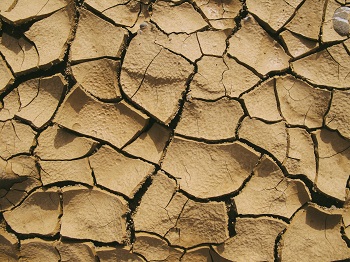What Does The Code Red For Humanity Mean To Me?
-

- 25 Aug 2021

Described by the UN Secretary-General as a “code red for humanity,”. The latest climate report released by the UN’s Intergovernmental Panel on Climate Change (IPCC) provides a sombre assessment of our planet’s future.
Released just in time for the COP26. The UN climate change conference is set to take place in Glasgow later this year. The much-anticipated report provides a comprehensive and detailed picture of how human activity is causing climate change. Its findings make for sobering reading.
But what does it mean to us? How can we help avoid a future of extreme heatwaves, severe flooding, and devastating droughts? In this article, we’ll highlight some of the key points raised in the IPCC climate change report and explain what code red for humanity means for you.
The IPCC Report – What You Need To Know
The IPCC consists of a panel of international scientists and leading climate experts endorsed by world governments. They prepare comprehensive climate change assessment reports using scientific, socio-economic, and technical data. They then present their findings to the United Nations.
IPCC reports, published every six or seven years, document the causes of climate change, potential impacts, and possible response options. The AR6 Climate Change Report 2021, otherwise referred to as the sixth assessment report, is the first significant review produced since 2013. And it comes just in time.
The Latest Report...
The latest IPCC report shows that global warming has far surpassed the estimations cited just three years ago. Stating, "It is unequivocal that human influence has warmed the atmosphere, oceans and land". Its authors claim that we will reach the global warming temperature of 1.5C (predicted in 2018), by 2040, even with drastic cuts in emissions. The message is clear; we need to take urgent action to avoid any further temperature increases.
In response, UN Chief Antonio Guterres said: “Today’s IPCC Working Group 1 Report is a ‘code red’ for humanity.” He continued, “The alarm bells are deafening, and the evidence is irrefutable: Greenhouse gas emissions from fossil fuel burning and deforestation are choking our planet and putting billions of people at immediate risk. Global heating is affecting every region on Earth, with many of the changes becoming irreversible.”
The Consequences Of 1.5C
With a global surface temperature rise of 1.1C since pre-industrial times, an additional 0.4C increase may sound insignificant, but it holds catastrophic consequences for the environment. According to IPCC author Dr Friederike Otto from Oxford University, we will see more intense and frequent heat waves, increased heavy rainfall events, and widespread droughts in many regions worldwide.
When global temperatures reach 1.5C above the levels of 1850-1900, we could also experience:
- An ice-free Arctic in summers before 2050
- An unprecedented increase in the frequency of extreme events
- Annual sea-level events in tidal gauge locations around the globe
- A surge in climate-driven wildfire hazards in many regions
- An increase in allergenic air pollutants
While the IPCC report suggests the 1.5C temperature increase in less than twenty years is inevitable in all scenarios. We could prevent further rises by cutting global emissions in half by 2030. If we reduce them to net-zero by 2050, we may even reverse some of the damage already done.
How Will This Code Red For Humanity Affect Me?
Climate change affects us all. It’s a global concern caused by the actions of humans and, while it is easy to dismiss it as a third-world problem, the severe floods in Belgium, Germany and indeed, some parts of the UK earlier this year have made many of us realise just how close it is to home.
The code red for humanity, while aimed at world leaders, is a warning to us all. But if we are to make a difference, we must understand the scale of the problem. According to Professor Ed Hawkins, one of the authors of the IPCC report, we must make rapid, immediate, and sustained reductions in global greenhouse gas emissions to stabilise global temperatures.
As individuals, we can only do so much. World leaders, members of the private sector, and global enterprises need to take immediate climate action and set clear targets. Together, we can limit global warming and secure the future of our planet.
What Can I Do About Climate Change?
Can we as individuals really make an impact on climate change? Changing how we shop, eat, and travel won’t prevent rising global temperatures. However, if everyone on the planet changed how they shop, eat, and travel as part of a transformation of society, we could make a difference.
Here are just a few ways in which you can react to the UN’s emergency code red for humanity by making lifestyle changes and smarter choices at home:
Recycle More: There is more to climate change than recycling, but it is a great place to start. If more households make a conscious effort to recycle their rubbish and fill up their recycling bins. We can achieve the government’s ambitious goal of recycling 65% of municipal waste by 2035.
Make Smarter Food Choices: Agriculture accounts for a substantial proportion (more than 10 per cent) of greenhouse gas emissions in Europe. Eating less meat, growing your own fruit and vegetables, and reducing food waste at home are impactful changes that benefit you and the environment.
Change The Way You Shop: Online shopping has become the new norm since the pandemic, but most transportation companies rely on fossil fuels to deliver our goods. Shopping, or the way we shop, is one area where we need to make significant changes. Shopping locally supports local businesses, and it can help you lower your carbon footprint.
Move To Clean Energy Sources: Reducing our reliance on fossil fuels such as coal, oil, and natural gas is essential to avoid further global warming. It’s time to heat your home with clean energy sources. Also, try cycling wherever possible, rather than using a car, it makes a huge difference to clean energy.
Talk About Climate Change: It remains a controversial subject, but the science speaks for itself. The more we talk about climate change. The more we’ll learn about it and what we can do to avoid a future of uncertainty.
What The Politicians Have To Say About The Code Red For Humanity Report
Dr Doug Parr, the chief scientist at Greenpeace UK, has called on world leaders to act on the findings of the IPCC report and establish “concrete policies” when it comes to carbon emissions, fossil fuels, and food systems. Stating: “This is not the first generation of world leaders to be warned by scientists about the gravity of the climate crisis, but they’re the last that can afford to ignore them.”
Thankfully, many of them have listened.
British Prime Minister Boris Johnson released a statement saying: “It is clear that the next decade is going to be pivotal to securing the future of our planet.” He continued, “We know what must be done to limit global warming – consign coal to history and shift to clean energy sources, protect nature and provide climate finance for countries on the frontline. The UK is leading the way, decarbonising our economy faster than any country in the G20 over the last two decades. I hope today’s IPCC report will be a wake-up call for the world to take action now, before we meet in Glasgow in November for the critical COP26 summit.”
While US President Biden Tweeted: “We can't wait to tackle the climate crisis. The signs are unmistakable. The science is undeniable. And the cost of inaction keeps mounting.”
Code Red For Humanity And Greta Thunberg…
As expected, Swedish environmental activist and climate campaigner Greta Thunberg had plenty to say about the IPCC report. She Tweeted: “The new IPCC report contains no real surprises. It confirms what we already know from thousands of previous studies and reports - that we are in an emergency. It’s a solid (but cautious) summary of the current best available science.” She continued, “It doesn't tell us what to do. It is up to us to be brave and take decisions based on the scientific evidence provided in these reports. We can still avoid the worst consequences. But not if we continue like today, and not without treating the crisis like a crisis.”
Code Red For Humanity... So What Now?
If the IPCC code red for humanity report has taught us anything, there is no time to delay. The next twenty years are a pivotal turning point for climate change. If world leaders do not implement urgent measures and ambitious goals to turn things around. We will face a future of extreme uncertainty.
The GOP 26 Climate Change Conference will take place from 31st October to 12th November this year. All eyes will be on Glasgow. Let’s hope they can diffuse our planet’s code red situation. For more articles and tips on all things recycling, check out the rest of our blog.














